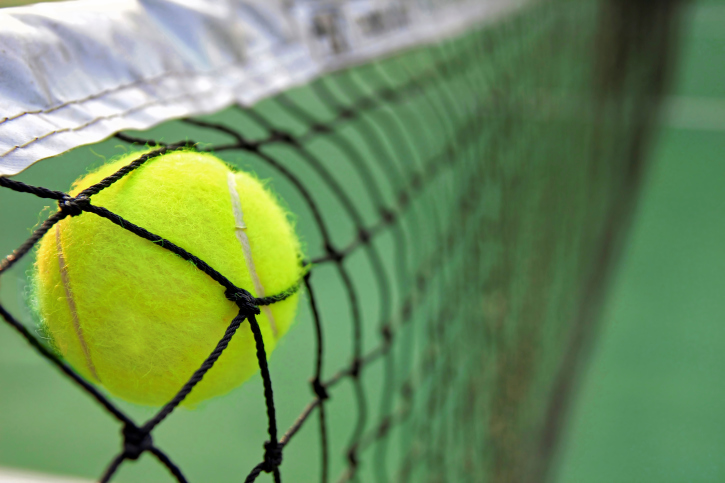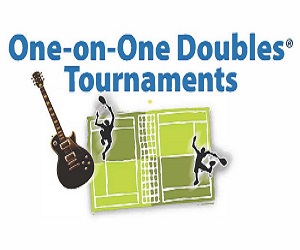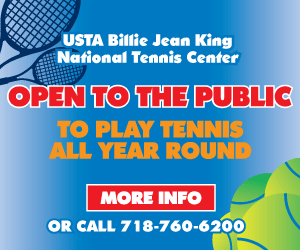Building Your Resume as a Coach: Part Two
Compounding coaching experience pays dividends

In the March/April 2016 issue of New York Tennis Magazine, I wrote Part One of what I have learned in my 20 years of teaching tennis. Each student I have worked with over the course of two decades has added to my body of work and my coaching philosophy. In the first part, I wrote about five lessons I have learned in that time, here are some additional lessons I have learned over the years.
6. Don’t teach every kid the same way
Every student has a different personality, different style and different body type, as well as varying levels of talent and passion for the game. I have also found that teaching boys is quite different than teaching girls. Therefore, a tennis coach needs to be a “shrink” of sorts, always seeking the key to each player’s mind. I found it very challenging, and in my younger years as a coach, I made some mistakes in this area. With experience, I learned to detect varying types of personalities and was able to adjust my approach accordingly. I found that some kids are fragile and need constant encouragement, while others need the “Iron Fist” approach because they perform better when pushed. Some kids were too mechanical and needed more match play. Others were great competitors, but had holes in their game and needed technical work and discipline on fundamentals. Each player needs an individual, customized program which makes the job of coaching very challenging, but also very interesting.
7. Be consistent in the message that you convey to the student and show up to each lesson prepared
A young student needs to know what the coach expects from them during a lesson. It is important that the student feels there is a method and a long-term plan. Many of my students come for lessons one to two times each week and it is necessary to pick a particular skill or stroke and work on it repetitively for a few lessons in a row. There has to be a progression. The student needs to get a chance to put in the time to internalize the instruction, and for this to happen, the coach needs to keep working on the same things and repeat the same mantras over and over even if it seems boring. Kids don’t get fooled easily, and can detect when a pro is “winging it.” I make it a point to come to each lesson prepared and make sure that there is always a connection between the last lesson. I will often tell the student what the subject of the next lesson will be and ask them to come prepared. If I take the lesson seriously, there is a very good chance that the student will as well.
8. Surprise the student from time to time
Let’s face it, tennis lessons can get a bit repetitive and boring sometimes. To get better, the kids need to hit thousands of balls the same way and go through some grueling drills, but from time to time, it’s worth it to simply play the game. I don’t do it too often, but every once in a while, I would surprise the kids with an “all-points session.” The kids are ecstatic of course when that happens. The idea is to remind the kids that the essence of the game is to play and try to win points, sets and matches. During those sessions, I emphasize strategy and point construction, but also intensity, mental ability and sportsmanship. I design all sorts of interesting and fun games.
It is important to keep a close eye on the kids because this kind of session can get a bit messy and you run the danger of losing intensity after a while as even practice games can get boring and repetitious. The key is not to hold these types of sessions too often and to make your student earn it, then reward them.
9. Act professionally, set an example, be a role model and keep a little distance from the kids
As a kid, I used to look up to my coach. As a coach, I feel that I have a responsibility to be a role model to the kids and instill good practice habits, sportsmanship and set an example as a human being. It is not always easy but necessary as the kids look up to you as a coach and will lose respect for you if they see the teacher make a fool of himself, lose their temper or act in an unprofessional manner. Things like starting and ending the lessons on time, being respectful and polite to others, being a good sport and engaging in the lesson are essential to me. I insist on the kids shaking hands at the beginning and at the end of each lesson, picking up balls promptly. I look them in their eyes when I’m speaking to them, e-mails regarding their strokes, and give advice before tournaments. The kids need to feel comfortable around the coach, but the coach’s behavior is very important in order to command respect. Once you gain the student’s respect and trust as an individual, you can really help them achieve success that can take them to the next level.
10. Never talk about winning
I believe that being competitive is inherent in human nature. Nobody taught me to want to win or how to win … this is something that doesn’t need talking about. When I coach, I explain how to construct a point, close out games, sets and matches with practical advice. But when it comes to talking about results and winning in a tournament, I don’t mention it because it will put unnecessary pressure on the student. There is nothing that a kid wants more than to please their parents and coach. I remember when playing juniors, I couldn’t wait to run to the phone (there were no cellphones back then) and call my parents to let them know I won. I was lucky enough to have a coach with vision and a father who was an athlete himself. My dad was more concerned with me being a good sport and behaving properly than winning. My coach would always surprise me when I was a kid after losses when he would point out the positives and give me a hug, telling me that he is proud that I gave it my all and emphasizing what we should learn from the loss. Interestingly, after winning a match, he would usually be more critical, making sure that I didn’t get too cocky, and telling me to keep my feet on the ground to get ready for the next match.
Tennis is a weird game. You can play a great match and end up losing, and also play sloppy but win. Junior tennis should be about playing the right way, conducting yourself appropriately and learning from each match. After all, to quote Tim Robbins from one of my all-time favorite sports movies “Bull Durham,” “Sometimes you win, sometimes you lose and sometimes it rains.”
11. Patience
In my early days as a coach, I was eager to achieve instant results and was often frustrated that the students didn’t meet my expectations. I would often see a student struggle and when they went a few weeks or months without visible improvement, I would wonder if they would ever get it. But in time, I learned to realize not to count anyone out and that kids need time to absorb instruction, since many of them go through various changes in their young bodies and minds. They might go through periods where they are not mature enough to commit to the game or suffer from a lack of coordination due to a growth spurt. It can be quiet frustrating when they train and do not improve. By now, I know that there is a delay of three to six months until the student implements new instructions. As a coach, I try to keep working on the subjects and give the kids positive encouragement, asking them to believe that the improvements will come. I had students who I worked with during their teenage years that called me when they were in college and said that only now at age of 19 or 20, they are starting to implement things we worked on when they were juniors. The point is that developing your game takes years. It’s a gradual process with ups and downs and some periods that plateau when you feel like you are not improving. Patience and self-belief are great virtues when you hit those periods. It is coach’s job to instill this belief in the student.






